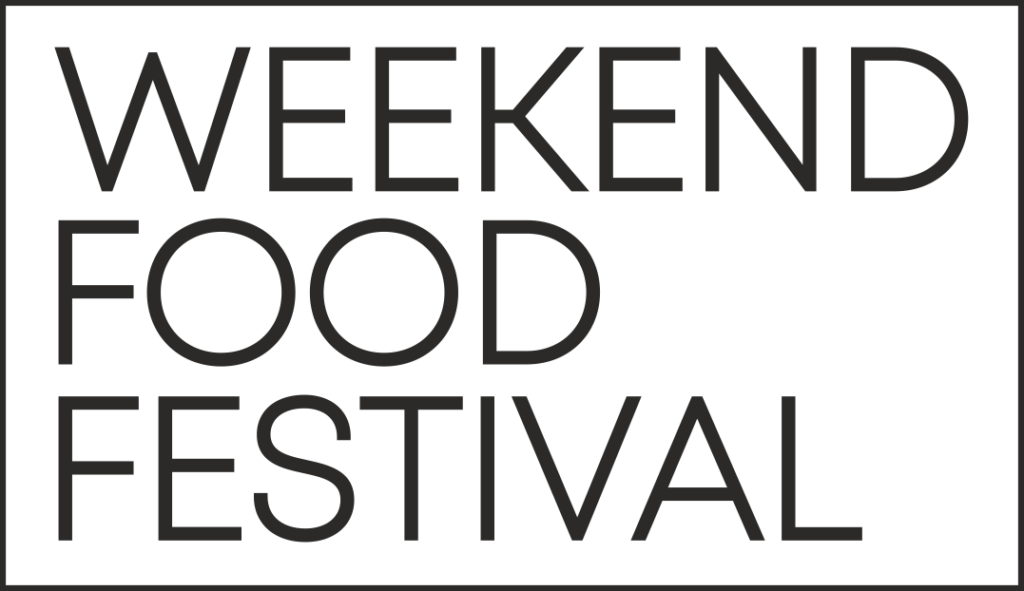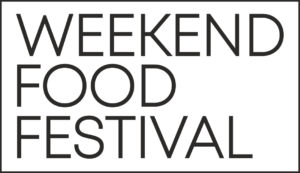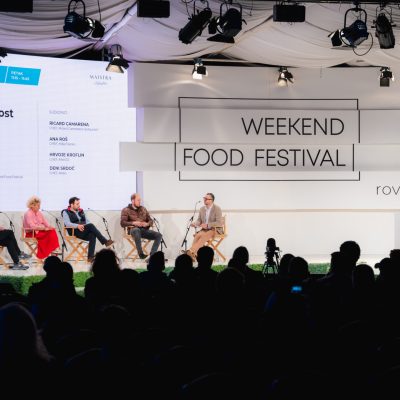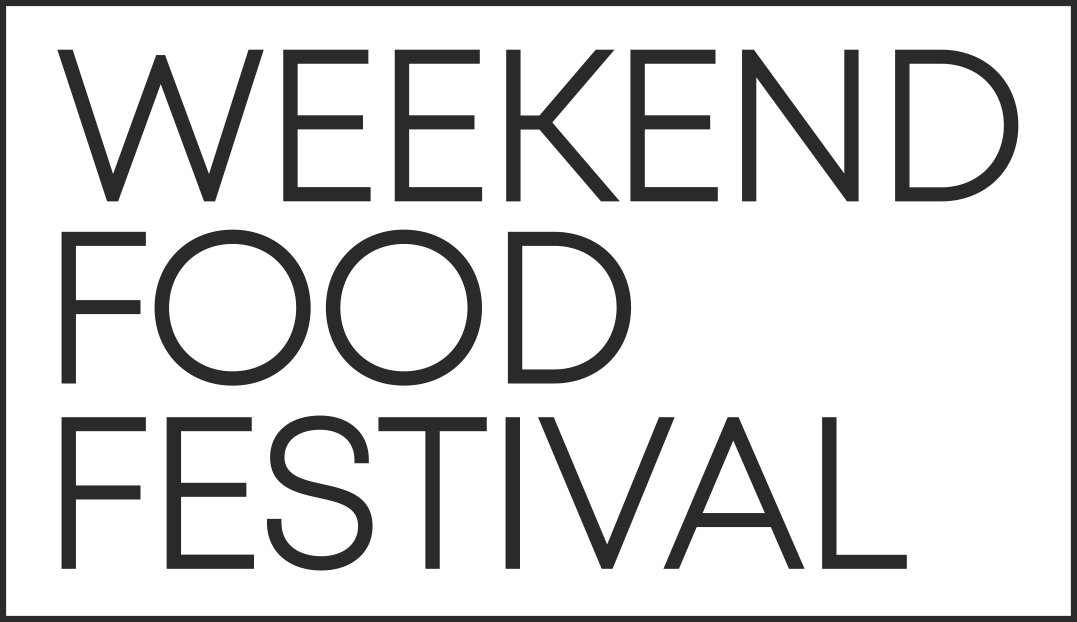Following the search for a sustainable future in and out of the kitchen, the Weekend Food Festival has begun. The panel gathered giants of the global and local culinary scenes, including Ricarda Camarena, Ana Roš, Hrvoje Kroflin, and Deni Srdoč, moderated by Hrvoje Petrić, the festival’s program director.

In recent years, the concept of sustainability has become a hot topic in almost all industries, and the food industry is certainly no exception. Turning to local and sustainable trends is present in numerous kitchens worldwide, and it is expected that it will spread to the most remote corners of the world on the wings of the leaders of the world culinary scene. In an age marked by mass exploitation of natural resources and extensive global production and transportation chains, obtaining a wide range of ingredients and raw materials at a rapid pace has become feasible, causing the concept of locality to take a backseat. Although such an approach greatly facilitates the creation of culinary masterpieces wherever you are and surpasses the limitations of product sensuality, it also brings with it a range of problems that undermine the concept of a sustainable kitchen. To ensure a sustainable approach and promote locality, authenticity, and the quality of the end products, it is necessary to think and act by these concepts. One of the central points of the last Weekend Food Festival was the Manifesto of Croatian cuisine, which presented the foundation for promoting sustainable and local cuisine by creating a network with local producers. However, the Manifesto offers a path, and it is up to the stakeholders of this comprehensive industry to implement it in their daily work.

Reducing food waste is one of the key steps in achieving sustainability, and chef Hrvoje Kroflin highlighted how they have a small recycling center in the cellar of a renowned restaurant and an innovative way to ensure maximum use of products: “What we want to do is use some of the remaining products through fermentation. Our goal is to gradually approach a higher level of sustainability over the years, and fermentation plays a very important role because of its properties.” In addition to maximizing the use of food, the concept of locality is also an important segment in achieving a sustainable future, and even though such an approach generally requires greater engagement than available alternatives, it also brings numerous benefits. “It’s like creating a big family, getting to know people and their way of working. The job is not easy, but in the end, although such an approach is challenging, it opens up opportunities for a more innovative and imaginative approach to creating dishes. It’s hard to find such producers, you have to travel and explore, but in the end, the effort pays off because we work with people who love their job and are dedicated to it,” emphasized Deni Srdoč, chef of the Nebo restaurant and the newly opened Hidden bistro in Rijeka.

The panel was also attended by Ricard Camarena, a renowned Spanish chef who, along with Ana Roš, presented the international component, and his restaurant strives for an enviable level of sustainability through numerous initiatives. One of the segments rarely talked about is the sustainability of chefs and staff, which also represents an important step in raising the sustainability of an industry notorious for its demanding standards. “Suitable working conditions are important, as well as a balance between private and professional life because internal harmony among people involved in processes is essential for innovative approaches and carefulness. For me, sustainability is not a question of the future, but of the present,” stated Ricard Camarena. Ana Roš, a giant of Slovenian and world cuisine from the Hiša Franko restaurant, presented last year at the festival how Hiša Franko strives for sustainability, and this year the restaurant will also open in Istria, with the same principles behind the idea as the already cult Hiša Franko. “Sustainable means respecting the past and caring for the future so that future generations can continue to eat healthily and with quality. Unfortunately, I do not believe that it is possible to be completely sustainable in business, but I believe that we can get closer to that goal,” said Ana Roš.
Undoubtedly, sustainability is a concept that will gain even more relevance in the future. While there are still problems to address, it is encouraging to see that some of the most prominent members of the restaurant industry are actively considering this idea. Their attitudes are making a positive contribution to the much-needed popularization of sustainability.




